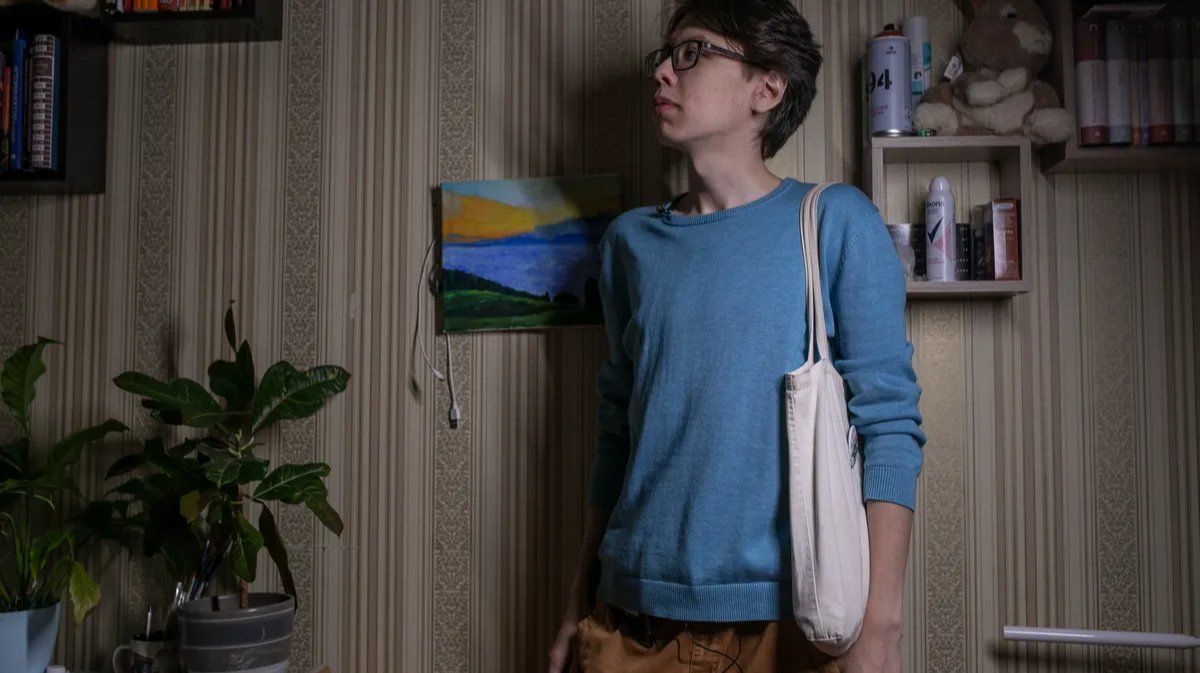Dmitry Kuzmin has been expelled from two St. Petersburg universities for his protest activities in the past six months, and was due to be released today after serving a 10-day sentence for openly criticising the war in Ukraine. Upon his release from custody on Monday, Kuzmin was immediately detained by law enforcement, according to OVD-Info.
This is a translated version of an article that first appeared in Novaya Gazeta Baltija.
Repeatedly detained in the past for his weekly solo protests in central St. Petersburg, Kuzmin had always been treated with relative lenience by the authorities who only fined him for violating the city’s COVID restrictions. However, he was warned that continuing to mount his protests would end badly for him, and was threatened with being called up to the army or facing criminal proceedings.
After one recent protest on 9 November, Kuzmin was apprehended near his home and taken to a police station. The police handed him call-up papers, which he went on to tear up, broke his cell-phone and physically assaulted him.
Upon his release, Kuzmin reported the police assault and waited for an official response. As he did so, he was detained again on 17 November, beaten, had his glasses broken and was then remanded in custody for 10 days.
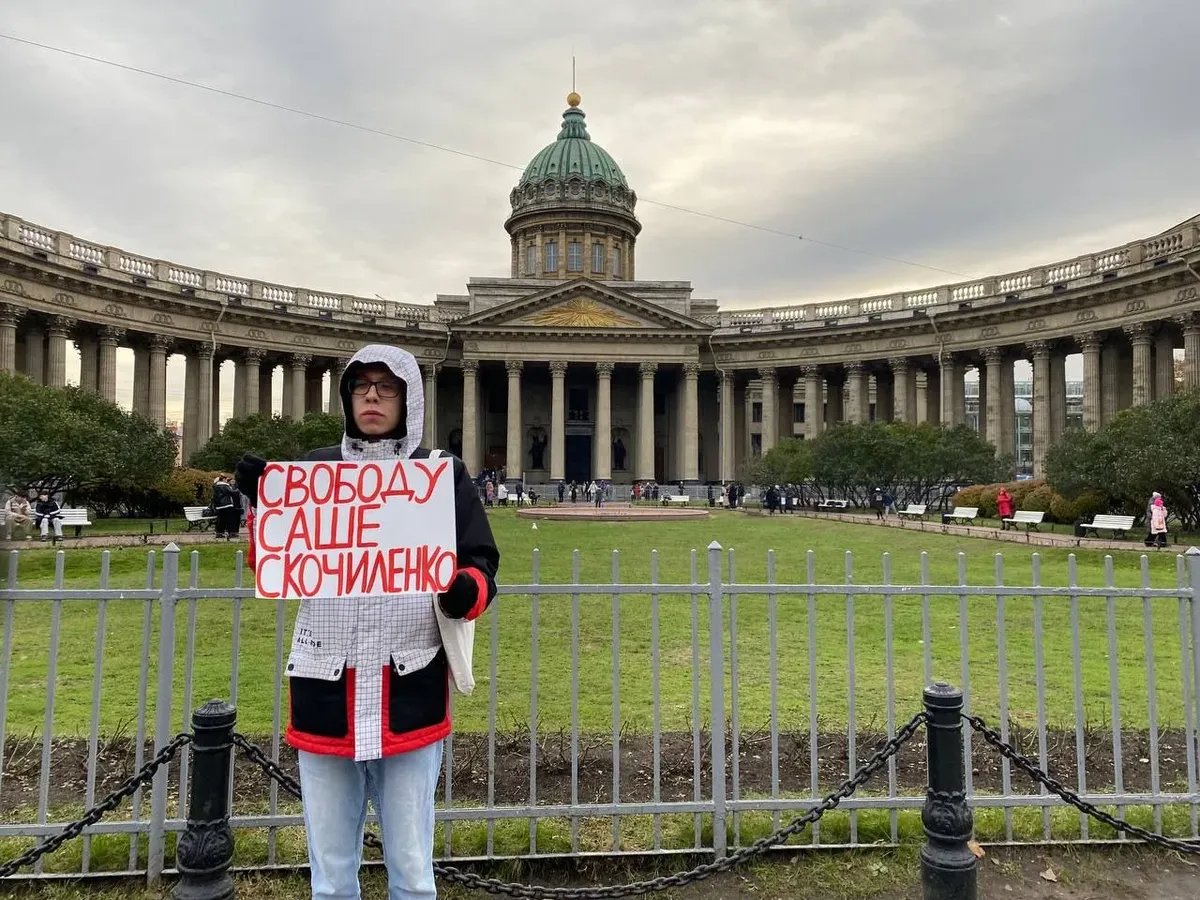
Kuzmin publicly pledges support for jailed anti-war activist Sasha Skochilenko. Photo from private archive
Small town boy
Kuzmin was finishing high school when the full-scale Russian invasion of Ukraine began last year, though people in the Siberian village where he grew up barely reacted to the news.
The son of a miner and a cook, Kuzmin developed a passion for history at a young age and spent hours in front of the TV watching the Russia-K arts and culture channel. In high school, he began to follow the investigations carried out by jailed opposition leader Alexey Navalny and his Anti-Corruption Foundation, and became increasingly interested in politics.
On the first day of the full-scale invasion, Kuzmin glued together two sheets of A3 paper, wrote “No to War” on them in large red letters and stuck them on the window of the ground-floor apartment where he lived with his family.
“If I met Putin, I’d tell him he’s a war criminal who shouldn’t be president. He should be in The Hague,” Kuzmin admits angrily. “But I can only do what I can do.”
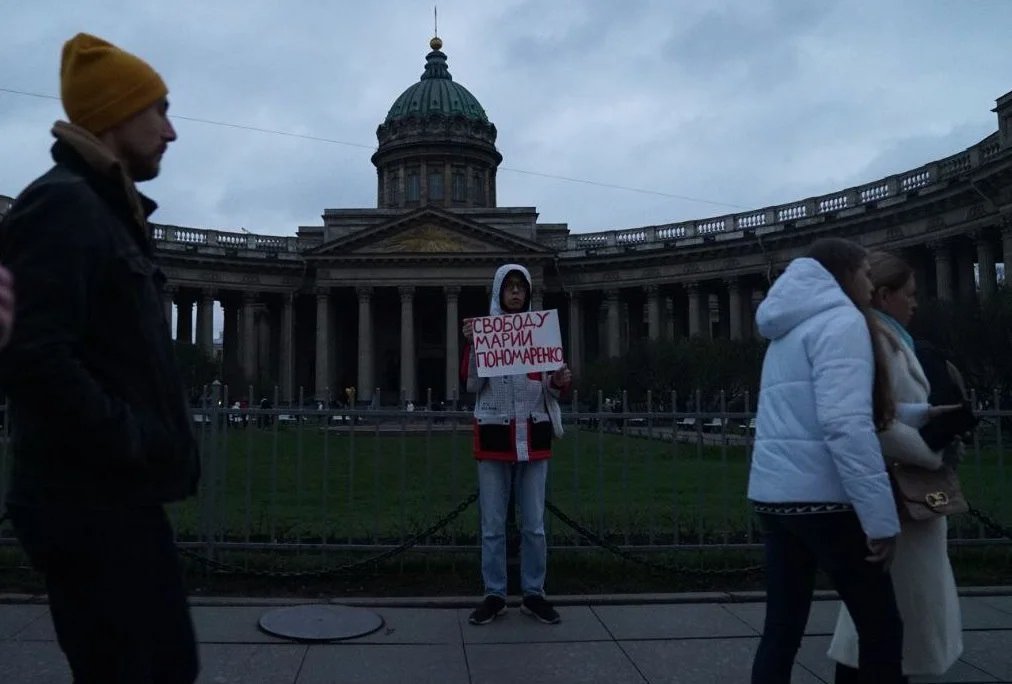
Kuzmin protesting in support of Maria Ponomarenko. Photo from private archive
His outspoken anti-war statement shocked the headmistress of his high school, who alerted the police. She began calling Kuzmin in for weekly chats, insisting he “not write anything else anywhere else” and “didn’t provoke people”. The police issued him a warning for his “one-man protest”, without even bothering to question him.
But he was in no hurry to remove his protest sign. A couple of weeks later, police officers were so incensed that the sign was still on display that they called Kuzmin’s mother’s place of work. He ended up taking down his protest sign just so that she didn’t lose her job.
‘Incompatible’
Kuzmin moved to St. Petersburg last year to take up his place at St. Petersburg State University’s History Faculty. Just a couple of months later, Putin announced partial mobilisation, and Kuzmin, who immediately took to the streets to protest, was detained for the first time. He was fined 10,000 rubles (€100) for taking part in an unsanctioned protest and, as a minor, was sent to a children’s shelter, from where his mother picked him up four days later.
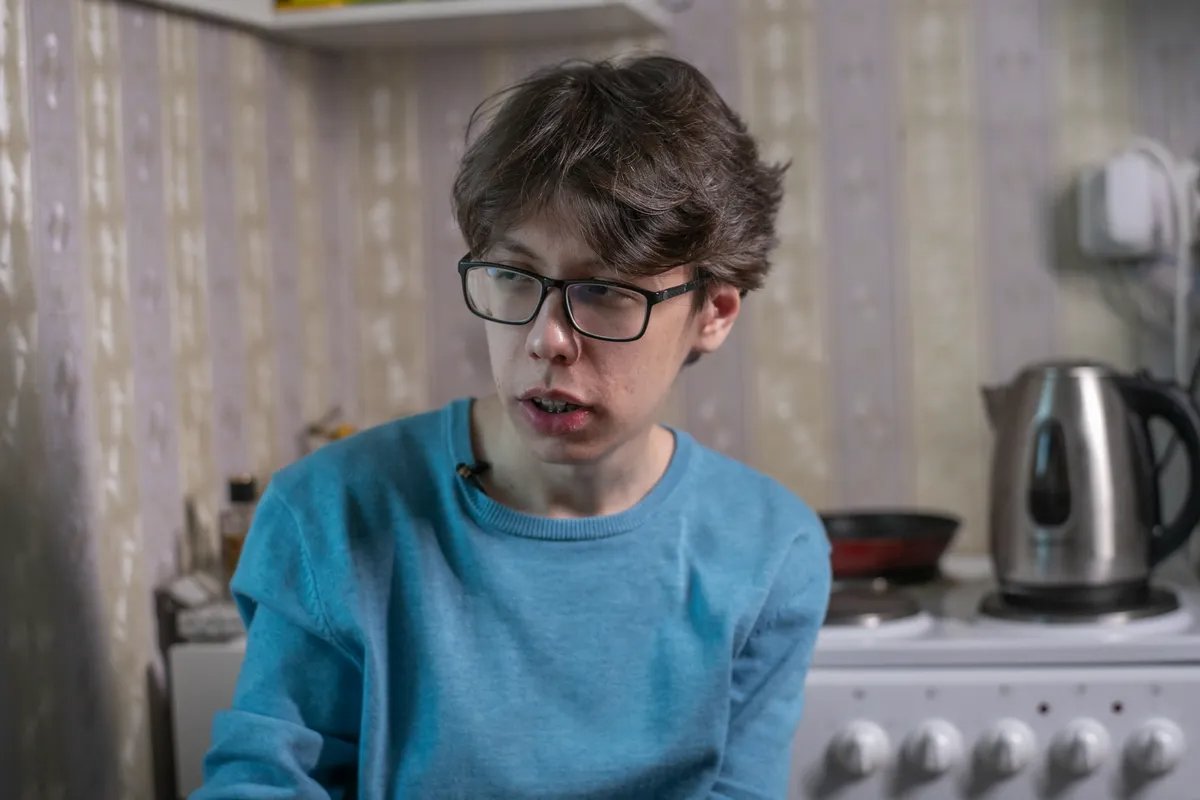
Dmitry Kuzmin. Photo: Dmitry Tsyganov, for Novaya Gazeta Baltija
Even understanding that renewed protests brought with them renewed risks didn’t deter him. He staged multiple one-man protests early this year, and attended those organised by St. Petersburg historic preservation activists.
In April, a 21-year-old history student at Kuzmin’s university was killed in Ukraine, an event that further polarised opinions among the student body. The head of department placed a portrait of the deceased in the lobby with flowers and a flag.
“Anti-war students took an absolutely logical stance. They saw it as cause and effect: he volunteered, signed up for this and died,” Kuzmin recounts.
But pro-war students informed the university administration that some of their fellow students had mocked the death of a patriot. As a result, the university expelled seven students in June, including Kuzmin, for “insulting the memory of a student who died during the special military operation”. Their actions were deemed “incompatible with being a university student”.
Small-scale protests
Within a month, Kuzmin had secured admission to the history faculty at St. Petersburg’s Herzen University. Undeterred by his previous experience, he felt unable to stand by and do nothing when theatre director Yevgenia Berkovich and playwright Svetlana Petriychuk were arrested in May and charged with justifying terrorism for their play about Russian women being recruited by ISIS, and he went out to protest before he even attended his first lecture. He subsequently staged another protest in support of political prisoners, and despite Kuzmin being detained on both occasions, Herzen University remained unaware of the incidents.
On 26 September, Kuzmin staged an anti-war protest outside the Kazan Cathedral, in the city centre. His placard read: “For your freedom and mine, peace to Ukraine, freedom to Russia.”
An unknown assailant tore up his placard and began attacking him but was subsequently interrupted by the police who had arrived to detain him.
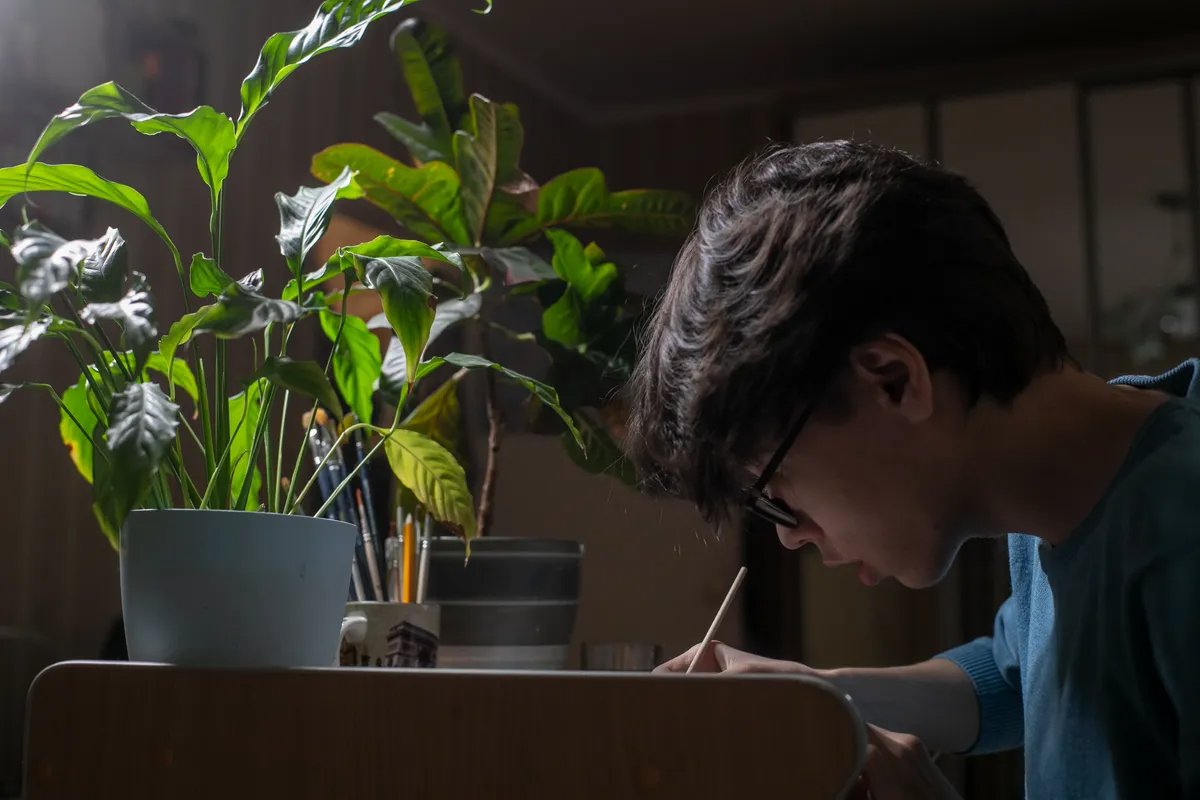
Dmitry Kuzmin. Photo: Dmitry Tsyganov, for Novaya Gazeta Baltija
He later learned that one of the police officers had reported him to the university. The staff were alarmed, and Kuzmin was summoned to a hastily convened disciplinary hearing.
“A committee of more than 10 staff members tried to get me to back down, so that I could potentially be let off. I sat there like a naughty schoolboy.
A committee member asked me, ‘Aren’t you worried you might cause psychological distress to people who walk past your protest?’ So I asked her, ‘Aren’t you worried what people whose relatives are dying in the Russian bombing of Ukraine are feeling?’”
Kuzmin lost all interest in studying at Herzen University after the meeting, although the university formalised that decision for him, expelling him for “a disciplinary offence” and “incompatibility with being a university student” on 6 October.
‘The horrors of the Putin regime’
Upon his second expulsion from university, Kuzmin went directly to nearby Nevsky Prospekt, the city’s main thoroughfare, and mounted another brave solo protest.
Kuzmin vehemently denies that mounting solo protests is meaningless, arguing that just seeing signs of open dissent in an increasingly authoritarian society is vital to stave off totalitarianism.
“If they see dissenters coming out, and that there are a lot of them, that this isn’t a lone madman, it’ll be easier for people to see reality and to dispel despair and darkness. There are small shafts of light preventing darkness swallowing Russia whole.”
“When historians look back in 100 years at what happened here, at the horrors of the Putin regime, they will see that, yes, there were horrors, but there were also people who didn’t support his policies, and came out against them, and that will also have historical significance.”
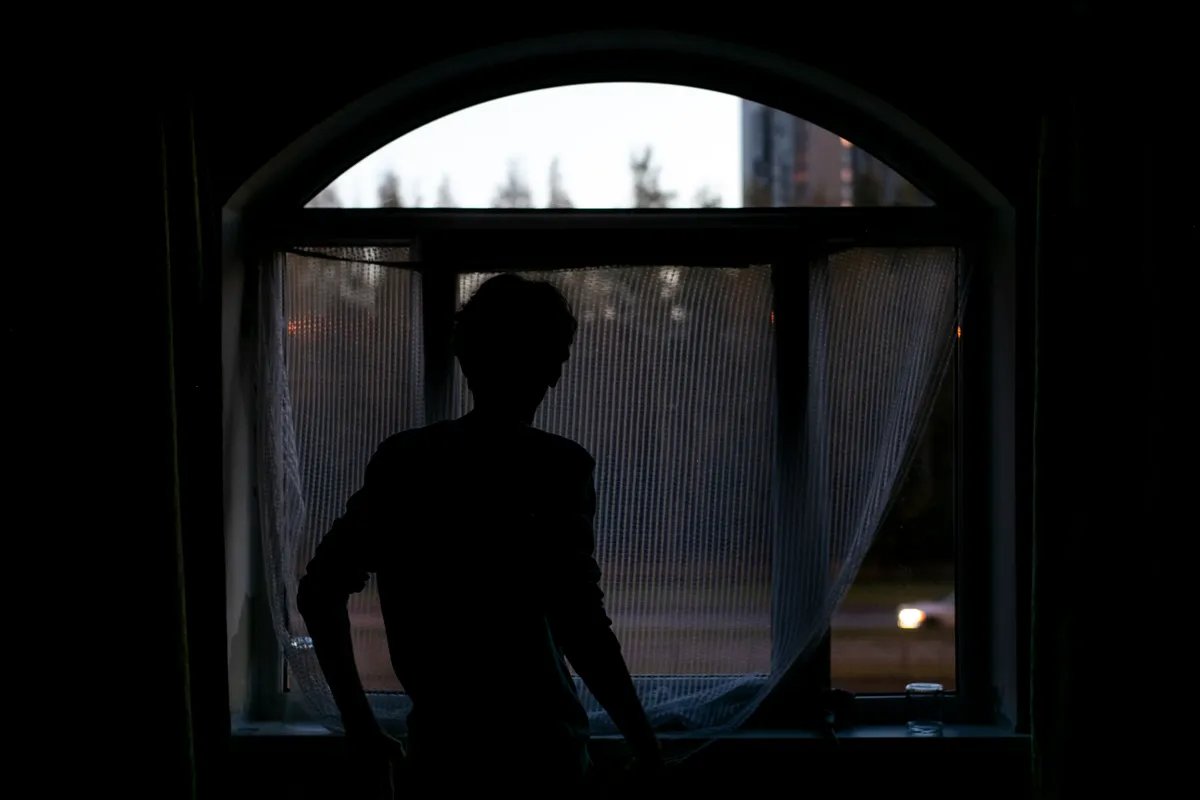
Dmitry Kuzmin. Photo: Dmitry Tsyganov, for Novaya Gazeta Baltija
Join us in rebuilding Novaya Gazeta Europe
The Russian government has banned independent media. We were forced to leave our country in order to keep doing our job, telling our readers about what is going on Russia, Ukraine and Europe.
We will continue fighting against warfare and dictatorship. We believe that freedom of speech is the most efficient antidote against tyranny. Support us financially to help us fight for peace and freedom.
By clicking the Support button, you agree to the processing of your personal data.
To cancel a regular donation, please write to [email protected]
